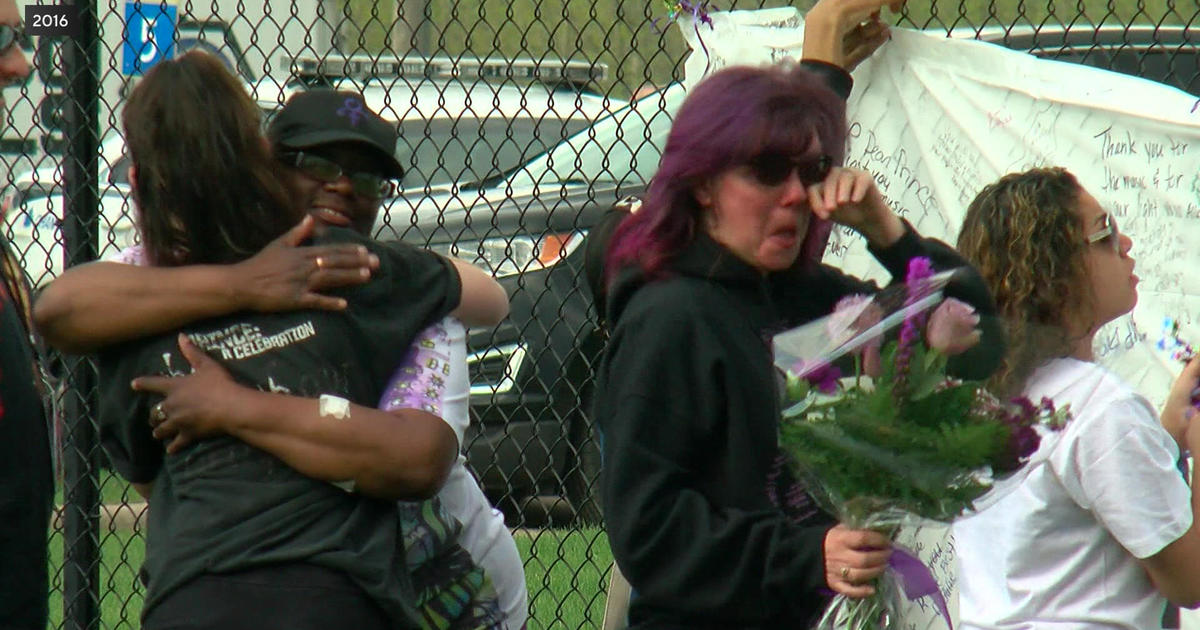Minnesotans React To Fidel Castro's Death
MINNEAPOLIS (WCCO) -- Cuban dictator Fidel Castro died Friday night at the age of 90. His brother Raul Castro made the announcement on state television.
There are mixed reactions to Castro's death from communities all around the world.
In Miami, Cuban-Americans in the Little Havana neighborhood took to the streets in celebration overnight. The crowd grew larger throughout the day as more learned of the news.
It was a much different scene in Russia Saturday morning. People, some of them crying, brought flowers to the Cuban Embassy there.
The country has had close ties with Cuba dating back to the revolution.
Russian President Vladimir Putin praised Castro in a statement Saturday morning, calling him "a symbol of an era."
Closer to home, Sen. Amy Klobuchar of Minnesota says Castro's passing is the start of a new chapter when it comes to the relationship between Cuba and the United States.
"The Cuban people and the American people have long been ahead of their government," Klobuchar said. "The majority of Americans want to lift this embargo and the majority of Cubans are much friendlier to America than their government leaders have been."
Klobuchar authored the senate bill on lifting the trade embargo with Cuba.
Rep. Erik Paulsen echoed Klobuchar's thoughts in a statement.
"The death of Fidel Castro, a brutal dictator for half a century who oppressed so many Cuban people through human rights violations, brings the opportunity for a new era with Cuba. Hopefully, this opens the door to accelerate additional engagement and stronger economic ties between the United States and Cuba."
Niki Stavrou, owner of popular Minneapolis Cuban restaurant Victor's 1959 Cafe, gave WCCO the following statement:
"At Victor's 1959 Cafe we want the best for the people of Cuba first and foremost. We have always celebrated the food, the people and the culture of Cuba and will continue to do so. We send our love and support to Cuba during this major event because, after all, Castro has dominated the history of Cuba and life of the Cuban people since 1959. That's a long time. Understandably there are different reactions among Cubans, living in Cuba or abroad, to this momentous event. Many who were born after 1959 remember Castro as the primary force in their island's history. But, as with any dictatorship, there are many who suffered, or whose loved ones suffered. Consequently we have to be understanding of the different ways people will react during this period of transition. Whether sympathetic or critical, people are already wondering what will come next. As most commentators have already pointed out, change had started some time ago when his brother Raul took Castro's place. President Obama has made an effort to re-start relations between the United States and Cuba, but of course developments will depend very much on the new administration in Washington. We will simply have to see how this plays out."
Dalia Katz, a Cuban exile, left the country when she was in her 20s. She now lives in Edina.
Katz took a mission trip to Cuba in 2008. She says while it may be hard for some to understand, she agrees with those celebrating the dictator's death.
"It was horrible. While I lived there anybody that would oppose the government, they disappeared, never to be found again," Katz said.
While many lawmakers are working toward further open relations with Cuba, Katz says she is skeptical about any real change because Fidel Castro's relatives remain in charge.
"Cuba is the family business. He had kids, his brother had kids and all those kids are now men and women and they are in charge," she said.
Raul Castro said his brother will be cremated. Funeral arrangements have not been announced.



